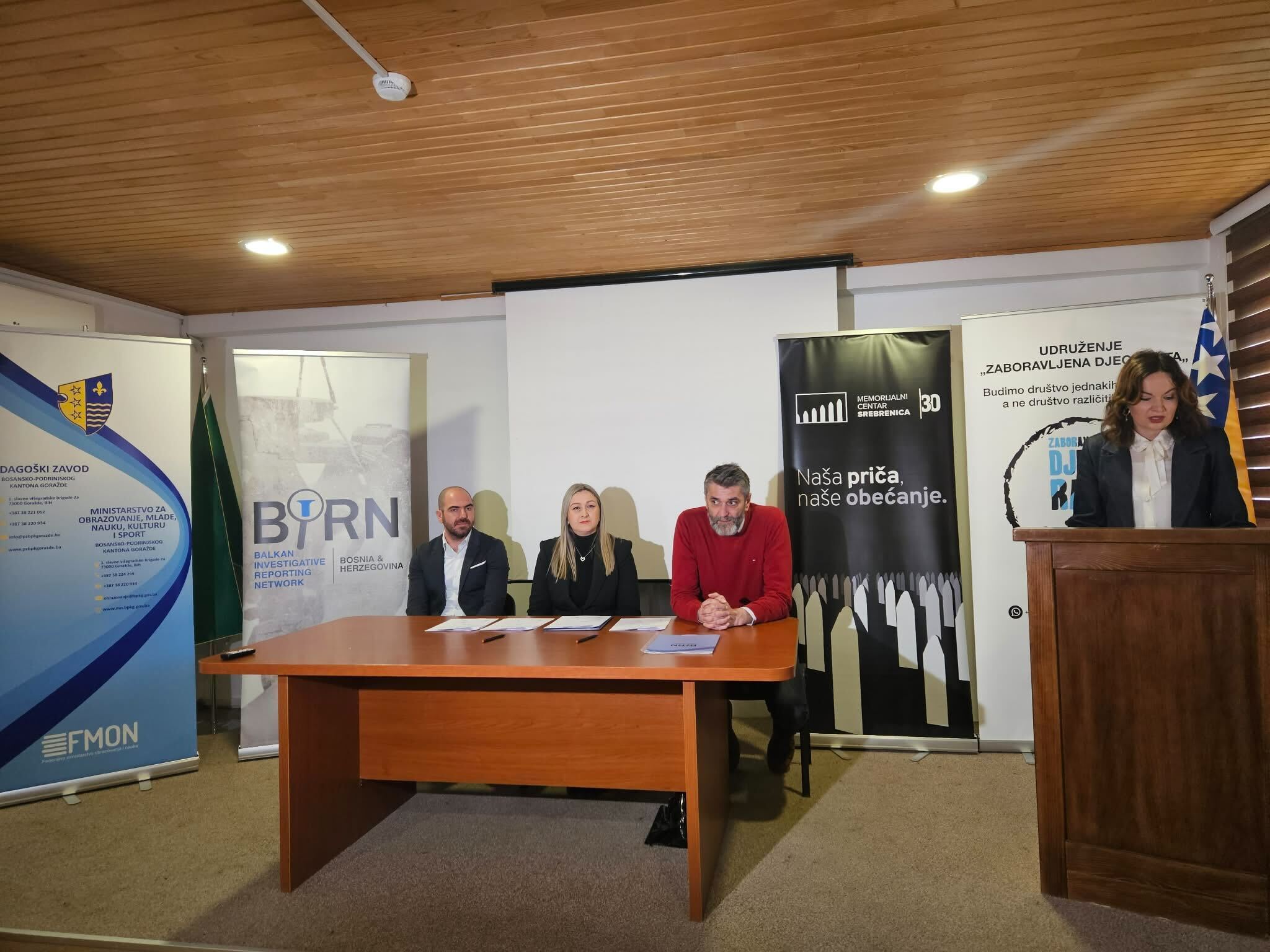This post is also available in: Bosnian
Skiljevic, who was appointed Manager of Kula in December 1992, said that he did not know about the legal grounds for the detention of Muslims, because that was the exclusive responsibility of the Army, which brought them to the prison.
He confirmed that the Republika Srpska Army, VRS, used to take prisoners to other locations in order to perform some works, but he did not know what exactly they did. As he said, prisoners did not complain about it, but, on the contrary, they volunteered to go.
Karadzic, the then President of Republika Srpska, RS, is charged with having persecuted Muslims and Croats throughout Bosnia and Herzegovina, including the unlawful detention, torture and murder in several detention camps and penal and correctional facilities.
According to the charges, thousands of Muslim civilians, who had been deported from Sarajevo neighbourhoods under Serb control and other parts of Bosnia and Herzegovina, were held in Kula for a certain period of time before being transferred to Sarajevo and exchanged. The indictment alleges that at least two prisoners were killed in Kula in April 1992, while three more were killed while performing forced labour by November 1992.
The witness said that some prisoners of war were killed during the shelling of Kula prison and a nearby farm by the Army of Bosnia and Herzegovina, ABiH, while some were killed outside the Penal and Correctional Facility complex.
According to Skiljevics testimony, besides prisoners of war, Muslim civilians were also accommodated in Kula. He said that they were held separately from prisoners of war, while waiting to be exchanged and go to parts of Sarajevo that were controlled by the ABiH.
Indictee Karadzic said that the civilians were hosted, while waiting to go to the Muslim part of the city.
Suggesting that the exchanges of civilians were organised by the RS Commission for Exchange under the auspices by UNHCR, Skiljevic said: Those people used to stay at that place for between five days and two months until they were exchanged That was called reuniting families.
Describing a visit by Karadzic, British politician Paddy Ashdown and international journalists to Kula prison in August 1992, Skiljevic said that foreign visitors had no objections to the way the prisoners were treated. As he said, members of the Red Cross, who spoke to prisoners in private every two months, did not file any protests with Skiljevic either.
The witness said that a group of 130 prisoners of war were brought from Manjaca to Kula in December 1992 in order to be exchanged, but they stayed in the prison until 1994, because the Muslim side refused to receive them.
During the cross-examination Prosecutor Katrina Gustafson suggested that the witness knew that many of the prisoners in Kula were not prisoners of war, but mostly Muslim civilians, who used to live on Serb territories. She reminded him that he had said that to Hague Prosecution investigators in 2003.
Civilians were neither arrested nor detained. They were brought to the Facility in order to be reunited with their families, Skiljevic said.
Presenting a list of Muslims, who were transferred from Rogatica to Sarajevo, the Prosecutor asked the witness who was reunited with whom.
The witness said that he did not deal with those issues, but the exchange commissions of RS and BiH, as well as UNHCR, did.
They did that without our involvement. We stayed at their disposal, enabling those people to stay overnight until they were transferred to Sarajevo. It was our help to them, in a certain war, Skiljevic said.
The Prosecutor then presented the witness with a statement by Dragan Bulajic, former Chief of the RS Exchange Commission, who said that 10,000 civilians passed through Kula.
While confirming that Bulajic did give the mentioned statement at his trial before the Court of Bosnia and Herzegovina, Skiljevic claimed that Bulajic testified wrongly.
I said that he was wrong and that there were 119 civilians. He agreed with that, Skiljevic said.
In July 2011 the Court of Bosnia and Herzegovina acquitted Skiljevic of the charges that he committed war crimes in Kula.
The cross-examination of Skiljevic is due to be completed on April 9 after RS President Milorad Dodik has testified.
In addition to the above, Karadzic is charged with genocide in Srebrenica, terrorising civilians in Sarajevo through a long-lasting shelling and sniping campaign, and taking UNPROFOR members hostage.

